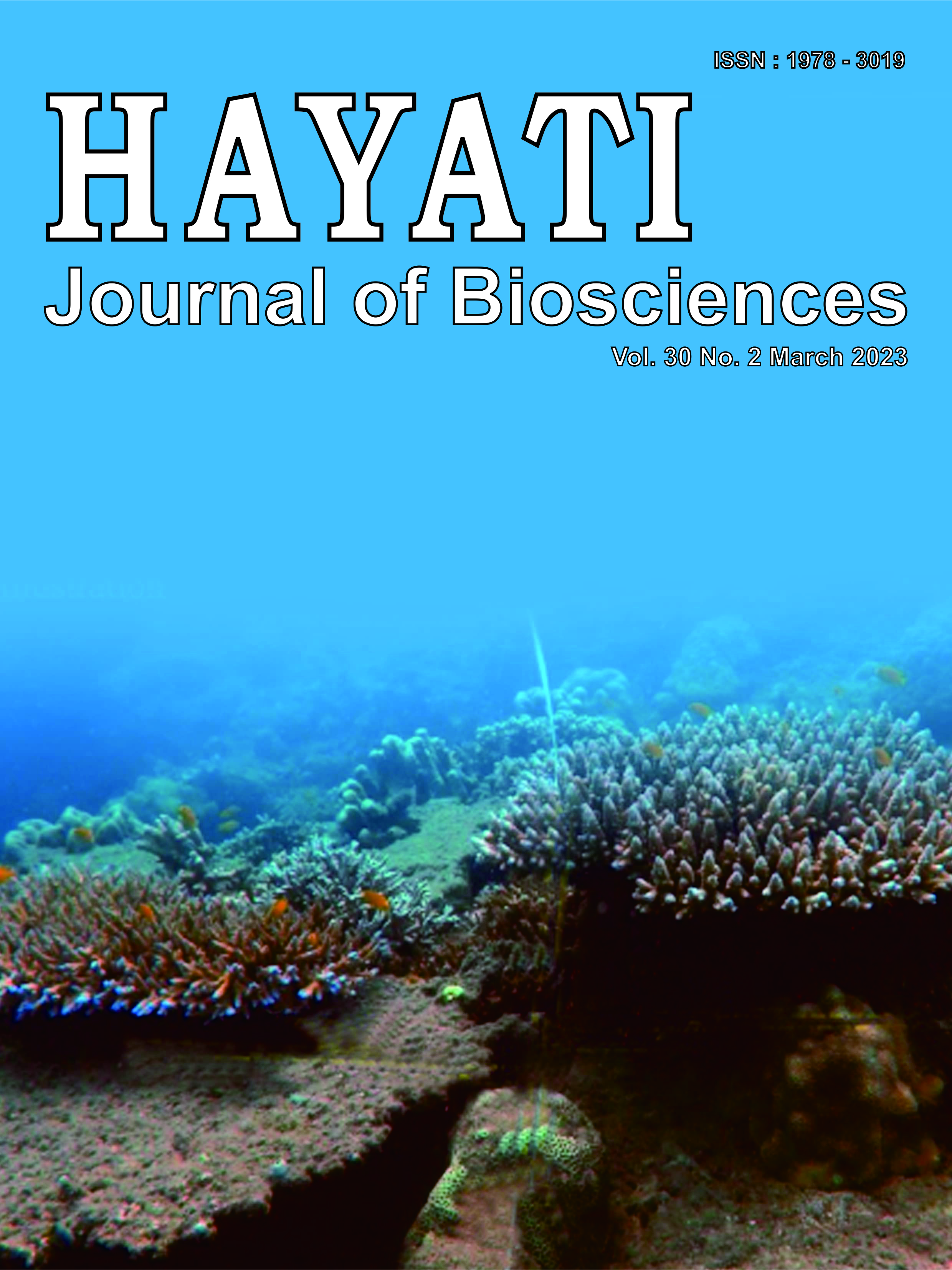Reef Fish Biodiversity at Different Depths in Tunda Island, Banten Province, Indonesia
Abstract
Reef composition and diversity of coral reef fishes play an essential role in the ecosystem. The reef fish diversity is a crucial indicator of the health level of coral reef ecosystems. The benefit of fish diversity in coral reef ecosystems is to describe ecological services. This research intended to determine reef fish diversity among stations at different depths, consisting of shallow water and reef slope. Research sampling was done in July 2018 and July 2019 in Tunda Island waters at eight stations billowing the coral distribution pattern. Collected data of reef fishes were by using Underwater Visual Census (UVC) on Belt Transects Method at 250 m2 transect area (50 meters of length and 2.5 m on either side). The result showed 69 reef fishes in shallow water and 67 species on the reef slope. The total of fish species ware from 13 families consisting of Acanthuridae, Apogonidae, Blenniidae, Chaetodontidae, Ephippidae, Haemulidae, Labridae, Lutjanidae, Nemipteridae, Pomacentridae, Pseudochromidae, Scaridae and Serranidae. The community services structure of coral reef fishes is included in the moderate community stability category with an H’ value ranging from 1.19-1.60 in shallow water and 1.23-1.44 at reef slope, respectively. Diversity in coral reef fish communities might be associated with species' spatial distribution over the reef habitat's physical structure, but these patterns could be highly scale-dependent. In general, it could be said that the higher the coral reef diversity, the higher the reef fish diversity.
Downloads
Copyright (c) 2023 Mujiyanto Mujiyanto, Amran Ronny Syam, Sasanti R. Suharti, Yayuk Sugianti, Saras Sharma

This work is licensed under a Creative Commons Attribution-NonCommercial 4.0 International License.
HAYATI J Biosci is an open access journal and the article's license is CC-BY-NC. This license lets others distribute, remix, tweak, and build upon author's work, as long as they credit the original creation. Authors retain copyright and grant the journal/publisher non exclusive publishing rights with the work simultaneously licensed under a https://creativecommons.org/

























.png) IPB University
IPB University Department of Biology
Department of Biology The Indonesian Biological Society
The Indonesian Biological Society 

